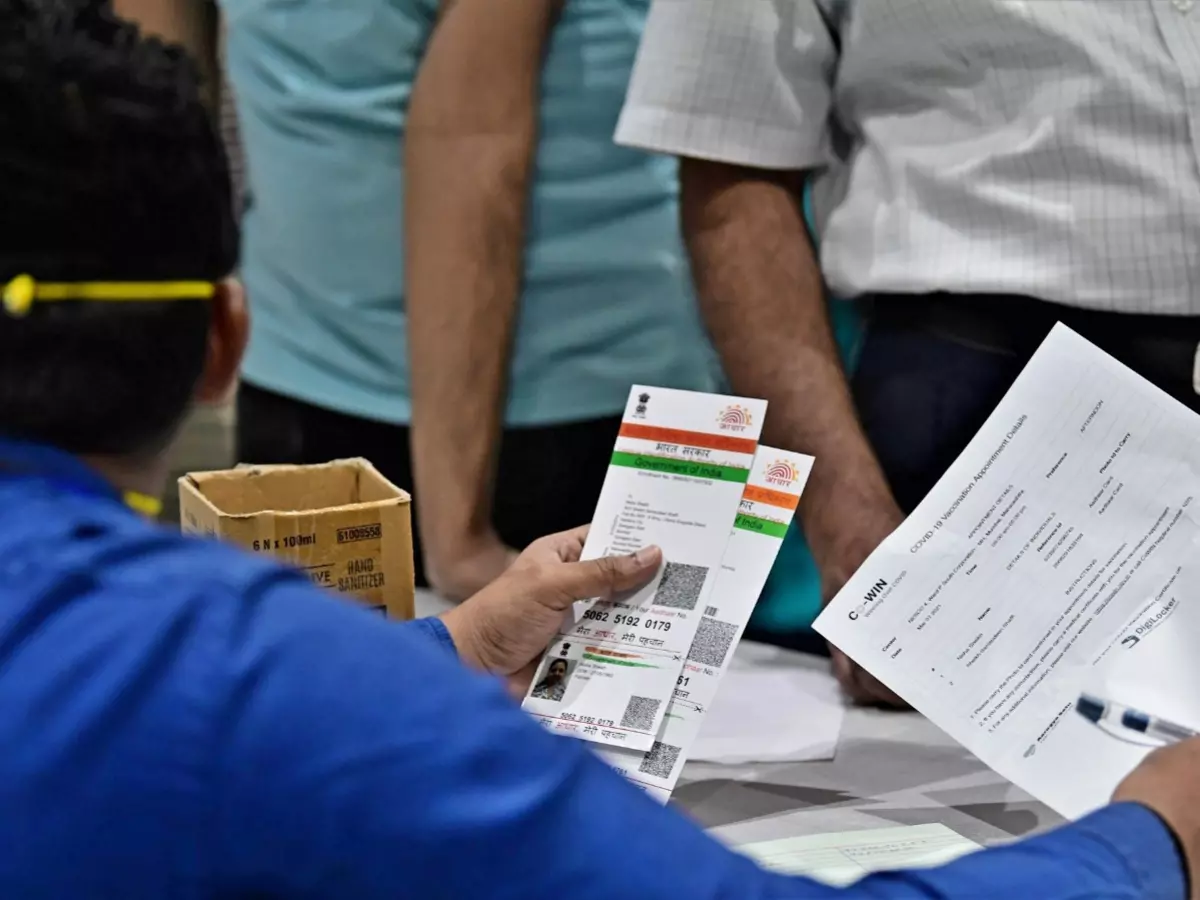Explained: How Government Seeks To Link Aadhar And Voter ID
Both Houses of Parliament have enacted The Election Laws (Amendment) Bill, 2021, which seeks to change the law governing elections. It modifies both the 1950 and 1951 Representation of the People Acts.

Both Houses of Parliament have enacted The Election Laws (Amendment) Bill, 2021, which seeks to change the law governing elections. It modifies both the 1950 and 1951 Representation of the People Acts.
A significant change is the inclusion of a capability to "connect electoral roll data with the Aadhaar ecosystem." This measure has been heavily criticised by the opposition as well as segments of civil society.
 BCCL
BCCL
According to the administration, integrating Aadhaar to electoral records will remove the problem of multiple enrolments of the same person in different places. "Once Aadhaar is linked, the electoral roll data system will immediately flag the presence of previous registration(s) anytime a person asks for fresh registration."
Further the government believes this will greatly assist in clearing the electoral roll and facilitating voter registration in the location where they are 'ordinarily resident.'
When did this procedure start?
The Election Commission launched a National Electoral Roll Purification and Authentication Programme in March 2015, with the goal of linking Aadhaar to voter IDs in order to remove duplicate names.
In a May 2015 press release, the EC stated, ¡°Under this programme, beside some other activities, linking and authentication of EPIC data of electors with Aadhaar data is also being done¡¡±
 BCCL
BCCL
However, the EC ¡°issued necessary instructions to the Chief Electoral Officers (CEOS) of the States/UTs specifying that furnishing of Aadhaar number by electors is not mandatory and it is only optional, as directed by the Supreme Court¡¡±
That year, the Supreme Court stated unequivocally, ¡°The Aadhaar card Scheme is purely voluntary and it cannot be made mandatory till the matter is finally decided by this Court one way or the other¡±.
The EC wrote to the Law Ministry in April of this year, requesting "rapid consideration" of pending election reforms, including the linking of Aadhar and voter ID cards. The Law Ministry published a statement earlier this week stating that on November 16, the Election Commission attended an informal meeting sought by the PMO to finalise the Cabinet note on some long-pending reforms.
What is the Opposition's reasoning for opposing the bill?
Opposition parties and activists are generally opposed to the Bill on the following grounds:
(a) that it infringes individual privacy by requiring the linkage of Aadhaar information with voter identification cards;
(b) that it contradicts the Supreme Court's decision, which confines the use of Aadhaar to government-provided financial and welfare benefits and prohibits the unwarranted expansion of Aadhaar's reach to other spheres of life;
(c) it may result in the inadvertent or deliberate deletion of names on a big scale;
(d) that it is not truly voluntary, as only a set of reasons to be defined later can be given for people who are unable or unwilling to provide their Aadhaar number; and
(d) that it may assist political parties in categorising voters as favourable or unfavourable.
Is the Aadhaar-voter-ID link required?
The move appears to be voluntary in character, as it states that no person would be denied inclusion in the electoral roll or any entry will be erased due to an individual's inability to provide an Aadhaar number.
 BCCL
BCCL
A Parliamentary Standing Committee report on demands of grants of the Law Ministry, presented in Rajya Sabha on March 6 this year, had said: ¡°The Committee has been advocating linkage of unique Aadhaar ID Card number with voter I-card which would streamline alterations in EPIC during change of ordinary residence by the electors. The incidence of multiple entry could also be eliminated which is required in participative democracy¡"
Further, in Parliament, Law Minister Kiren Rijiju said linking Aadhaar with the voter ID card ¡°is voluntary. It is not compulsory or mandatory¡±. He said the government held ¡°many meetings¡± with the Election Commission before the Bill was brought.
However, such inability or non-submission must have ¡°sufficient cause as may be prescribed¡±. This means that a separate rule will be prescribed to list the possible reasons that may constitute ¡°sufficient cause¡± for an applicant or voter not to submit their Aadhaar number.
What has been the experience of various states with this linking process?
The State Resident Data Hub (SRDH), which receives data from the UIDAI and curates it further, provided the data utilised by the Election Commission to curate electoral rolls in Telangana and Andhra Pradesh in 2018.
 BCCL
BCCL
Activists believe that as a result of this activity, lakhs of voters were removed from Telangana's voter rolls in 2018. Several residents have reported that their names were removed from the voter list as a result of the electoral rolls being constructed using the Aadhaar-related information.
An RTI answer also revealed that no door-to-door verification activity was conducted to validate the database. Activists argue that the Aadhaar database is riddled with mistakes, and that linking it to the voter list may result in serious omission problems if the Telangana and Andhra Pradesh examples are repeated elsewhere.
For more on news and current affairs from around the world please visit Indiatimes News.
